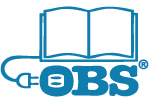Words inscribed on paper form a permanent record of our civilization. Just as a painter controls every brush stroke, a sculptor his chisel, so do authors deliberately choose each word, each signpost pointing to an idea or a thing.
A book. A stunning achievement. Sometimes a genius captures in words the Geist of an era. As James Joyce did in Ulysses, opening the door on our interior landscape in a new genre, the modern novel. As comedian Lenny Bruce did in a different way, by ripping at the foundations of American racism and bigotry with his shocking words and outrageous audience confrontations. And as Twain did in The Adventures of Huckleberry Finn, laying bare the moral struggle of growing up, in a racist America, revealing the painful process of coming to know, act on, and accept the consequences of one’s own true emotions. Twain chose his words deliberately. His masterpiece has stood the test of time; we have no right to change it.
Yet, NewSouth, Inc. is publishing a sanitized version ofHuckleberry Finn, replacing 219 instances of “nigger” with “slave,” thereby weakening the moral axis of the book, where young Huck struggles to understand his companion in flight, the mature Jim — his “friend,” “slave,” “nigger,” “father” figure, or fugitive from “justice”? With Jim’s life and his own soul at stake, young Huck wrestles with his choice. The boy becomes a man.
Where does Huck’s loyalty lie? Should he turn Jim in to the authorities and probably condemn him to death, or follow his own moral compass, and embrace his friend, accepting all the danger that act entails? Huck frees us all by deciding not to turn Jim in, declaring “All right, then, I’ll go to hell!”, recognizing Jim not as a “nigger” or as a “slave” or as someone separate from himself at all, but as a kindred spirit beyond nasty labels and tags, a fellow man worthy of trust, allegiance, and risking hell for. Those words, those labels, represent attitudes and specific nuances of understanding that reveal to us the complexity of Huck’s dilemma, the power and humanity of his choice.
His story remains instructive to us today; the story elements and character dilemma remain vital to us. That’s why it’s a classic. Slavery’s face has changed since the 1800s, but it is still with us in all its horror and depravity. Racism, a hydra-headed monster, too has found new virulent forms today, and can be masked but not erased by exercises in censoring uncomfortable words. Art helps us know ourselves, helps us live and face hard choices. In this light, how dare some blue-pencil-wielding, bottom-line-bowing bureaucrat bowdlerize this great novel of American moral action?
As racism and bigotry continue to rend this country, and slave-produced goods populate the shelves of the giant chain stores where Americans shop, more than ever we need Huck Finn, for inspiration and guidance. Intact. Unadulterated. Twain conveyed his message in words — be they hurtful, sublime, ecstatic, precise — and to understand and learn from the story and the moral message of Huck’s dilemma, we need to read those words exactly as they were written.
Keeping immutable and permanent the art of our forebears, especially in today’s borderless, ever-evolving (!) electronic environment, offers a greater challenge than most of us realize. The Internet puts us in great danger of losing our civilization’s permanent record. As George Orwell foresaw in Animal Farm, a communally shared publishing medium can be exploited by those in power. In Orwell’s novel, the animals governed what started out as their utopian community by writing their “Seven Commandments of Animalism” on the side of their barn, only to find, over time and as the corruption of power and self-interest took root, their revolutionary commandments were edited beyond recognition by the reigning pigs from “ALL ANIMALS ARE EQUAL” into “ALL ANIMALS ARE EQUAL. BUT SOME ANIMALS ARE MORE EQUAL THAN OTHERS.” In redacting and republishing Huck Finn, NewSouth publishers assert that they have more rights than we the readers do to our commonly shared heritage.
Orwell’s barn-wall palimpsest today takes the form of internetworked iPads, iPhones, laptops and desktops. Our decades-long debate about publishing rights and business models in the boundary-less e-world comes to a head today as online e-books and print-on-demand publishing become dominant. In this protean environment of impermanence, is this censorship of Huck Finn only the first step; will we tolerate other classics to be bowdlerized, just because it is so easy and profitable — and politically correct — to do?
If we accept NewSouth’s shanghai’ing of Twain’s work, what’s next? How would they republish Lenny Bruce, for example? As a heavily redacted flip book populated by the asterisks of deletion? How about Molly Bloom’s soliloquy in Ulysses? Turn all those bawdy “yeses” into “maybes” and render into pablum the baring of the female soul?
Just because we control the media does not give us the right to tamper with the messages that are produced on, conveyed over, and stored on them. The price of freedom is vigilance; this sanitized version of Huckleberry Finn shows that we need to be vigilant now, protest its publication, and protect our recorded civilization from “e-book evanescence,” where the “real,” the permanent and paper-published book falls subsidiary to PC-driven, new and censored e-versions. E-censors can try to control our collective online archives, profit from the gutting, sanitizing and repackaging of art, and in so doing, alter our past, stupefy our present, and control our future. This is not a tolerable outcome for thinking people. Allowing such adulterating of our common library, on our watch, without comment, is tantamount to publishing the censored version of Huckleberry Finn ourselves.
